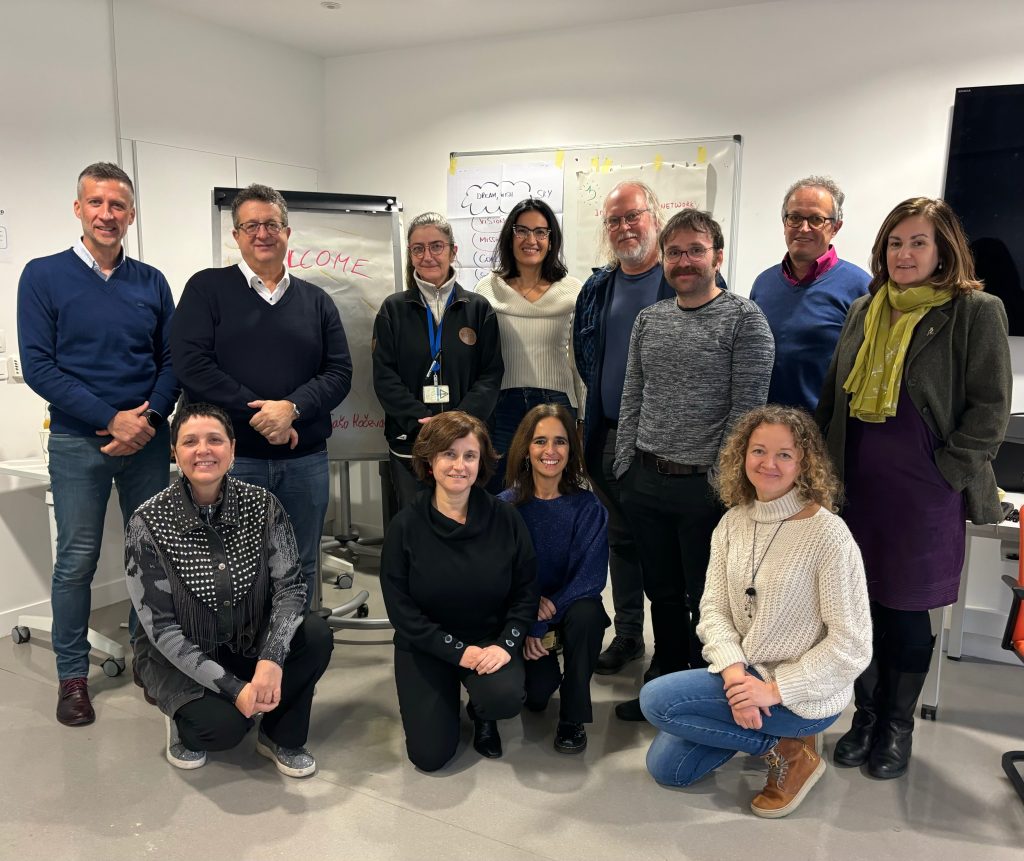
Authors: Valentina Adami (University of Trento, Italy and Core Technologies for Life Science – CTLS), Lola Martinez (CNIO – Madrid, Spain and Core Technologies for Life Science – CTLS), Natalie ZM Homer (University of Edinburgh, UK, and Core Technologies for Life Science – CTLS), Julia Fernandez-Rodriguez (University of Gothenburg, Sweden, and Core Technologies for Life Science – CTLS)
Navigating the Challenges of Working in a Specialized Research Community –Working in a specialized research community can be both rewarding and challenging. Core facility managers often juggle multiple projects while collaborating with various groups, networks, and associations at the local, national, and international levels. While being part of a community is incredibly valuable, the demands on time and competing priorities can make consistent engagement difficult. This is particularly evident in international networks, where in-person meetings are infrequent, and communication is primarily reliant on emails and virtual platforms. Switching between different groups and navigating back-to-back meetings—whether online or in person—can be exhausting.
The Importance of a Collective Vision – A strong collective vision is crucial for fostering successful communities. To address this, we brought together core facility managers from across Europe—including participants from Sweden, Italy, Spain, Switzerland, Germany, the UK, and France—for a community workshop. Hosted at the Institut Pasteur in Paris on December 10–11, 2024, the workshop was organized by RItrainPlus and Core Technologies for Life Sciences (CTLS).
The workshop featured lively discussions about the challenges and opportunities within our community. Participants were introduced to practical strategies aimed at setting and maintaining a strong and clear vision for their networks.
Key Strategies for Community Success – Some of the strategies explored during the workshop included:
- Frame-Setting Techniques: Structuring group processes, such as meetings, to maximize focus and productivity.
- Moderating Collegial Discussions: Facilitating discussions to align on a common vision and effectively communicating it to diverse stakeholders.
- Sustaining Motivation: Applying principles from self-determination theory to keep network members motivated and engaged.
- Team Dynamics: Understanding the key elements that contribute to effective and meaningful collaboration.
Participants also worked through the process of translating ambitious goals (the “dream”) into actionable outcomes (the “earth”). This involved defining clear visions, missions, goals, and tasks through practical examples and hands-on exercises.
Exploring Practical Tools
The workshop tackled essential questions, including:
- How can we develop a clear and compelling vision for our network?
- How can we drive and foster the exchange of experiences?
- What strategies can effectively engage and motivate community members?
- How can we structure group processes to ensure they are impactful and productive?
Through these discussions, participants gained valuable insights and practiced tools to enhance their networks’ cohesion and effectiveness.
The Role of Active Participation and Skilled Facilitation – The success of the workshop was made possible by the active engagement of participants and the expertise of facilitators Saso Kocevar and Romain Barres from HFP Consulting. Over two days, attendees collaborated, learned, and practiced strategies to strengthen their communities and networks.
By fostering a shared vision and equipping community leaders with practical tools, initiatives like this workshop play a vital role in empowering research networks to thrive amidst the challenges of a dynamic and interconnected world.
The facilitators gave suggestions for further interesting reading including:
- “Start with Why” by Simon Sinek, —the idea that great leaders and organizations inspire action by clearly defining their purpose and values.
- “Self-Determination Theory” by Richard Ryan & Edward Deci – emphasizes the satisfaction of basic human needs for autonomy, competence, and relatedness as a key driver of motivated behaviour.
- Group dynamics and Team Building studied by Bruce Tuckman – describes the ‘Tuckman Stages of Group Development” for how teams move through stages defined as forming, storming, norming, and performing
The success of the workshop was driven by the diverse group of participants—representing different nationalities, technologies, and career stages—and the expertise of the facilitators. This combination created a productive environment for meaningful and constructive discussions, particularly focused on refining the vision of the CTLS association. The workshop also provided a valuable opportunity for in-person discussions and team-building, a welcome change for this group, as many of their interactions typically take place in virtual settings.
Feedback from participants was overwhelmingly positive, with attendees describing the workshop as “inspiring and energizing,” “a chance to pause and reflect on skills that are often overlooked, despite their profound impact on everyday work,” and “remarkably relevant and timely.”
